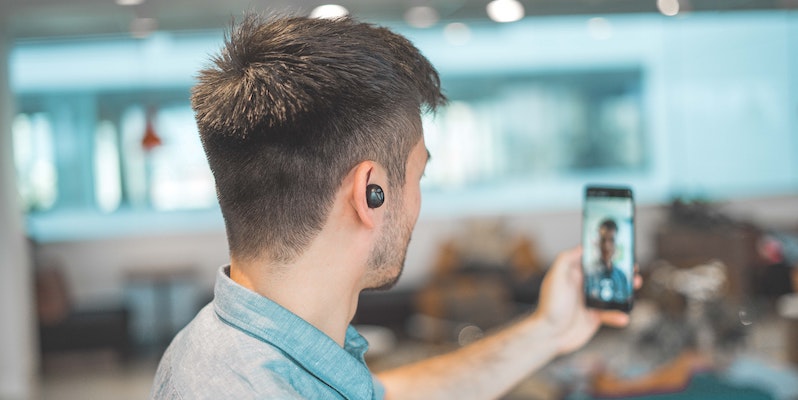
Access to in-person medical care has been limited during the COVID-19 pandemic, as health care workers have focused their attention on flattening the curve. Here’s the good news: This has given rise to enhanced telehealth services, enabling patients to receive essential addiction treatment from the comfort of home.
Here, we provide a primer on telehealth for addiction, including confidentiality concerns, insurance coverage, and the benefits of virtual substance abuse treatment.
What Is Telehealth for Addiction?
Telehealth services refer to phone or video sessions for talk therapy or medical care. Though telehealth is not new, many providers have expanded their virtual services as a result of the COVID-19 pandemic. Addiction treatment centers may offer a variety of medical and clinical telehealth services depending on your needs and level of care.
Telehealth services for addiction may include clinical assessments and psychological evaluations, case management, medication management, and crisis intervention. Therapy is available for individuals, couples, and families, as well as groups. In addition, telehealth services are available for discharge and aftercare planning, including aftercare recovery support groups.
A qualified rehab center should provide the same evidence-based treatment virtually as they do in person. Addiction therapists will work with you to create an individualized treatment plan based on your needs. With telehealth services, you can receive compassionate, confidential addiction care from the comfort of home.
Confidentiality Concerns for Telehealth Services
Because of the pandemic, modified Health Insurance Portability and Accountability Act (HIPAA) privacy rules permit physicians to communicate with patients on various video-conferencing platforms, including Apple FaceTime, Facebook Messenger video chat, Google Hangouts video, Skype, and Zoom. Your provider should enable all available encryption and privacy modes when using these applications. You may want to consider an addiction treatment center that offers telehealth sessions in a HIPAA-compliant portal, which provides additional privacy protections.
Insurance Coverage for Telehealth Services
Telehealth services may be more affordable than you think. In fact, the Centers for Medicare & Medicaid Services—as well as private insurers—have expanded coverage of telehealth services due to the COVID-19 pandemic. While in-person care is still desirable for addiction treatment, federal and state governments have expanded telehealth benefits in order to promote continued access to care. Call the rehab center to learn more about insurance coverage for telehealth services, or contact your insurance company directly.
Benefits of Virtual Substance Abuse Treatment
Virtual therapy enables you to receive the addiction treatment you need from the comfort of home. Key benefits include:
Removing geographical barriers. Telehealth services eliminate the need for travel, which is especially helpful if you live in a rural or hard-to-access area. Instead of getting in a car, train, or plane, you can reap the benefits of private rehab in your own home.
Providing crisis intervention. When you’re in crisis, you shouldn’t have to worry about traveling to get help. Telehealth increases access to quality care, allowing you to get help immediately and receive frequent support throughout treatment.
Bringing your family together. Geographical distance or work commitments may preclude your loved ones from joining family therapy in person. Telehealth sessions allow family members to participate in therapy together, so each member can address concerns with the therapist and with one another.
Maintaining connections. Group therapy enables you to break the cycle of isolation and stay connected with your peers. With virtual recovery support groups, you can interact with others on the journey to recovery and maintain a strong support system.
Extending treatment time. Telehealth may allow you to extend treatment services for a longer period of time than is available in person, helping you keep your support system in place and stay strong in your commitment to sobriety.
Boosting accountability. Outpatient telehealth programs provide built-in accountability, which is essential in early recovery. Telehealth can empower you to take charge of your own recovery program, with substantial clinical guidance and support.
While in-person interaction is valuable in recovery, telehealth can allow for efficient and effective services at every stage of treatment. If you’re looking for treatment while social distancing, telehealth services for addiction may be the solution you’re seeking.
Want to learn more about virtual addiction treatment? Contact our trained admissions counselors at (888) 984-5288 to find out if Beachside Rehab’s telehealth services are right for you.
Photo by Harry Cunningham on Unsplash
